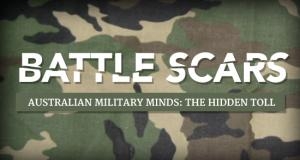"Younger vets are turning up with much more intense anger and its much closer to the surface," Doug Brewer, the program co-ordinator of the PTSD program at Western Australia's Hollywood Clinic, told Crikey. He says younger veterans battling PTSD are more likely to be polydrug users, with alcohol abuse, marijuana and ecstasy all common.
Instead, whole new intensive programs had to be constructed for younger veterans, with the Hollywood Clinic one of just two around the country that specifically targets this growing problem (Heidelberg Repatriation Hospital in Victoria is the other). At the Hollywood Clinic, the younger veterans program involves an 18-week commitment as an outpatient: an intensive two-week phase (with five days per week of treatment) and then 16 weeks of two days per week. Partners or support persons also attend for one day a week for eight weeks.
"With younger males, one difficulty is that they try and recover by themselves and are not as quick to come forward to treatment," said Brewer. Sufferers may have young families and be unable to take time off work or be away from their families for the weeks required. There's also an increase in broken marriages with younger veterans and child custody can be an added issue.
In the last five years the Australian Defence Force and the Department of Veterans' Affairs have developed a closer relationship in dealing with soldiers, sailors and airmen during their transition from the force. So how supportive and helpful is Defence when it comes to coping with PTSD or other issues? "The upper echelons are proactive in wanting change and there's clear directive on the military to get that message down," said Brewer. But Chiu notes middle management in Defence can often be dismissive of issues; he understands they are "bulked down by practicalities" and the logistics in leading large military teams on a daily basis.
But while younger veterans may be angrier and more prone to drug use, many of the basic PTSD issues remain the same no matter the generation. Most people deal with nightmares, flashbacks and traumatic thoughts. PTSD sufferers experience both an increase and a lack of arousal: more prone to anger, sharp outbursts and suppressing emotions, less likely to seek out anything enjoyable and there's often a loss of libido. Avoidance is also common: avoiding work, sleep, crowds, loved ones.
The biggest issue for returned veterans is often "moral wounding", according to Brewer: "It's not so much the engagement with the enemy as much as being exposed to seeing the way that human beings treat one another."
It's almost a type of cultural shock: visiting countries where women may not be as respected, where children may not be regarded as important or where hard work isn't valued.
PTSD is often experienced when someone's value system is tested. Brewer gives the example of a solider being trained to neutralise the enemy and avoid contact with locals unless necessary, however a child may beg a solider for help and the solider may have to ignore the child (despite perhaps having their own children back at home) to focus on their job.
Younger veterans suffering PTSD often feel they are no longer a positive impact on their family and friends. Clinical director of the Hollywood Clinic PTSD program Dr Winston Chiu talks of one soldier who encountered a massacre on his second day of deployment -- he could feel his body become "contaminated" by encountering such a horrendous sight. On his return home, he feared his own family would become "contaminated" by his presence.
However, the biggest moment of clarity is when the PTSD sufferer realises it wasn't that their personal value system collapsed and they no longer care about things, but instead the reason they are so deeply affected is because their value system remains stronger than ever. They are pushing their family and loved ones away because they don't want to hurt them -- not because they don't love them.
Suicide is commonly discussed during these programs. Chiu explains that many of their participants have pre-planned how they would commit suicide and may have already attempted it. "It's a serious issue which we're facing. PTSD does bring many of these people to a point where suicide becomes a reasonable way of dealing with these intense feelings and the intrusion of their past back into their daily life," said Brewer. "There wouldn't be a program we run with participants who aren't severally affected by their colleagues who have died by suicide."
It should be noted not every veteran needs to be enrolled in a PTSD treatment program. "We can do harm by doing too much too soon," said Brewer. "The evidence now is don't jump in because we prevent recovery occurring naturally. We know that under normal circumstances we bounce back from trauma. There is no magic formula for who will and who won't."
*Have you or someone who know suffered from mental health issues during or after ADF service? Crikey would love to hear from you (anonymity is assured). The military runs a 24/7 confidential counselling telephone service for any veterans or family of veterans who need help: call 1800 011 046. For non-military help or information visit beyondblue.org.au, call Lifeline on 131 114 or visit this page for a detailed list of support services.




